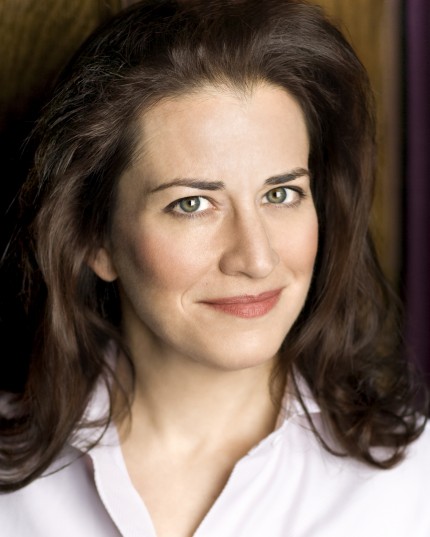

| Noted for her radiant, crystalline voice
and superb musicianship, soprano Christine Brandes brings her committed
artistry to repertoire ranging from the 17th century to newly composed
works. She enjoys an active career in North America and abroad, performing
at many of the world’s most distinguished festivals and concert series in
programs spanning from recitals and chamber music to oratorio and opera. Highlights of past seasons include Debussy’s La Damoiselle élue with the Indianapolis Symphony Orchestra conducted by Carlo Rizzi, a program of Bernstein’s Symphony No. 1, Jeremiah and Haydn’s Mass No. 10 in C major, Paukenmesse with the Santa Rosa Symphony led by Bruno Ferrandis, and performances at the 92nd Street Y in New York City with the Brentano String Quartet. She has also given a series of important premieres including an Eric Moe commission entitled Of Color Braided All Desire with the Brentano String Quartet as part of the South Mountain Concert Series, and Jennifer Higdon’s In the Shadow of Sirius, based on poetry of former American Poet Laureate, W.S. Merwin with the Cypress String Quartet at the Herbst Theatre in San Francisco. During recent seasons, Ms. Brandes appeared at Washington National Opera as Despina in Così fan tutte conducted by Philippe Auguin, and as Catherine in William Bolcom’s A View from the Bridge, and made returns to Portland Opera in Così fan tutte, to Central City Opera as Maria Corona in Gian Carlo Menotti’s The Saint of Bleecker Street, and to Seattle Opera as Pamina in Mozart’s Die Zauberflöte under the baton of Gary Thor Wedow in a new production directed by Chris Alexander. She also bowed with Arizona Opera in the title role in Gluck’s Orfeo ed Euridice, conducted by Joel Revzen, and with the Lyric Opera of Kansas City as Cleopatra in Giulio Cesare and as The Governess in The Turn of the Screw. Symphonic appearances have included concerts with the Chicago Symphony Orchestra under the batons of both Pierre Boulez and Esa-Pekka Salonen, performances of John Adams’s El Niño with the Tokyo Symphony Orchestra, Mendelssohn’s Elijah with Michael Christie and the Phoenix Symphony, St. John Passion with Robert Spano and the Atlanta Symphony Orchestra, L’Enfant et les Sortilèges with Sir Simon Rattle and the Los Angeles Philharmonic, Mozart’s Requiem with the Cleveland Orchestra and John Nelson, Vivaldi’s Gloria with the Los Angeles Philharmonic at the Hollywood Bowl conducted by Grant Gershon, Handel’s L’Allegro, il Penseroso ed il moderato with the Mark Morris Dance Group at the Kennedy Center conducted by Jane Glover, Mahler’s Symphony No. 2 with Rafael Frühbeck de Burgos, and Beethoven’s Egmont with Wolfgang Sawallisch, and Schumann’s Das Paradies und die Peri with Sir Simon Rattle, both with the Philadelphia Orchestra, Mozart opera arias and Strauss orchestral songs with the National Symphony Orchestra and Heinz Fricke, Bach Cantatas with the New World Symphony Orchestra, a recording and European tour of Jomelli’s Ezio with world renowned baroque orchestra Il Complesso Barocco under the baton of Alan Curtis. Brandes has also sung Handel’s Messiah with the Toronto Symphony, the New York Philharmonic, Tafelmusik, and the Minnesota Orchestra, Carmina Burana with the Houston Symphony, Bach’s St. Matthew Passion with Jane Glover and the Music of the Baroque, Haydn’s Mass in the Time of War with Bernard Labadie and the San Francisco Symphony Orchestra, Pergolesi’s Stabat Mater with Neeme Järvi and the Detroit Symphony, and Barber’s Knoxville: Summer of 1915, and Mahler’s Symphony No. 4 with Andreas Delfs and the Milwaukee Symphony, the Canton Symphony, and paired with Berg’s Lulu Suite with the Santa Rosa Symphony. She also has bowed at Lincoln Center’s Mostly Mozart Festival and at the Ravinia Festival with the Philharmonia Baroque Orchestra, as well as with the Orpheus Chamber Orchestra, Ensemble Orchestral de Paris, Chamber Music Society of Lincoln Center, Freiburger Barockorchester, and the Handel & Haydn Society, Pacific Symphony and Arion Baroque Orchestra in Montreal, as well as a residency with the Oregon Bach Festival with performances of several Bach Cantatas, and a semi-staged version of Honegger’s Jeanne d’Arc under the batons of Helmuth Rilling and Marin Alsop respectively, among others. She has also recorded Cantatas of Alessandro Scarlatti and other works led by Nicholas McGegan. Christine Brandes’ operatic career has been highlighted by engagements at Houston Grand Opera in Ariodante with Christopher Hogwood and in Falstaff with Patrick Summers, at Seattle Opera in Giulio Cesare, and at the Los Angeles Opera in L’Incoronazione di Poppea with Harry Bicket and in Hänsel und Gretel with Alan Gilbert. Additional performances of the artist’s distinguished career have brought her to San Diego Opera in Ariodante, Central City Opera in L’Incoronazione di Poppea, Lisbon’s Gulbenkian Foundation in Così fan tutte, Opera Theatre of St. Louis in Cimarosa’s The Secret Marriage, Portland Opera in Così fan tutte, Glimmerglass Opera both in Handel’s Orlando and Acis and Galatea, San Francisco Opera in Semele under the baton of Sir Charles Mackerras, the Opéra de Nancy in Alcina, New York City Opera in Acis and Galatea and Platée, and to the Opera Company of Philadelphia in Die Zauberflöte, L’Elisir d’amore, and Don Giovanni. Brandes has performed Le nozze di Figaro with New York City Opera, Seattle Opera, Opera Pacific, and with the opera companies of Minnesota, Montréal, Philadelphia, and Québec. Brandes recently appeared with West Edge Opera (Oakland) in Martin y Soler’s L’Arbore di Diana; the Boston Symphony Chamber Players in György Kurtág’s Scenes from a Novel, and Handel’s Israel in Egypt at Carnegie Hall with the New York Choral Society. As a conductor, Brandes has led operas by Haydn and Rameau for Victory Hall Opera (Charlottesville), and Gluck’s Orfeo ed Euridice for West Edge Opera. She is an Associate Professor of Voice and Opera at San Francisco State University, director of the UC Berkeley University Baroque Ensemble, and assistant conductor of the Oakland Civic Orchestra. Christine Brandes has recorded for EMI, BMG/Conifer Classics, Dorian, Harmonia Mundi USA, Virgin Classics, and Koch International. == Biography mostly from the Kennedy Center
website (text only - photo from another source)
== Names which are links in this box and below refer to my interviews elsewhere on my website. BD |
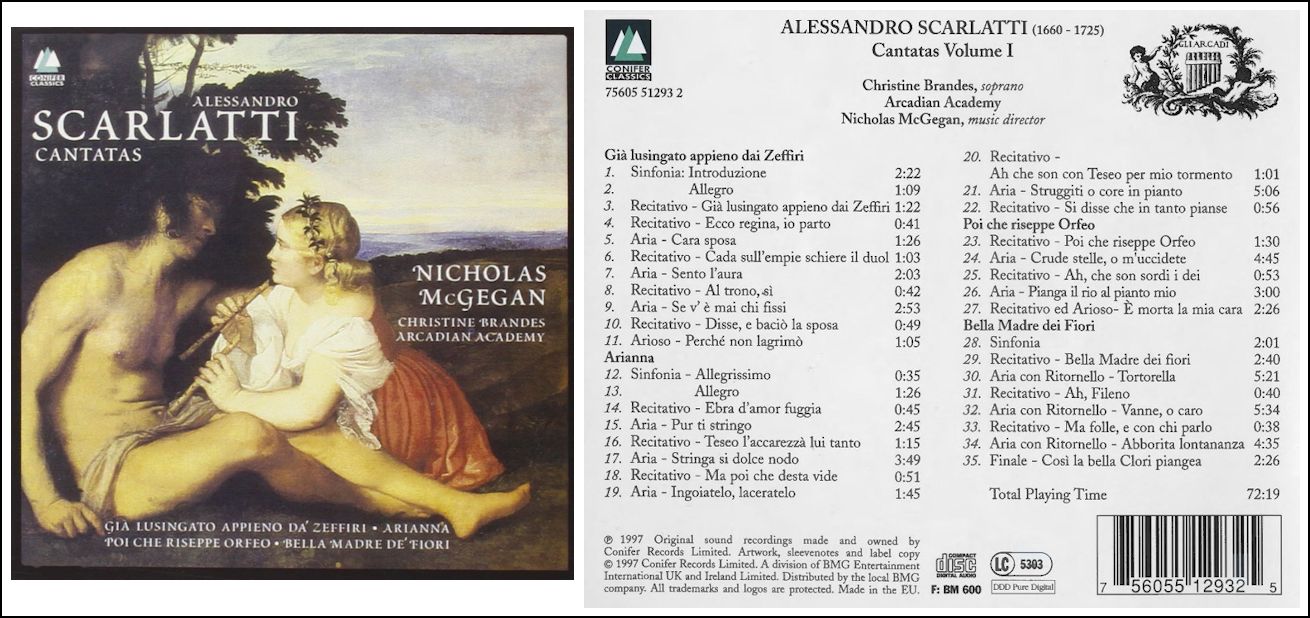
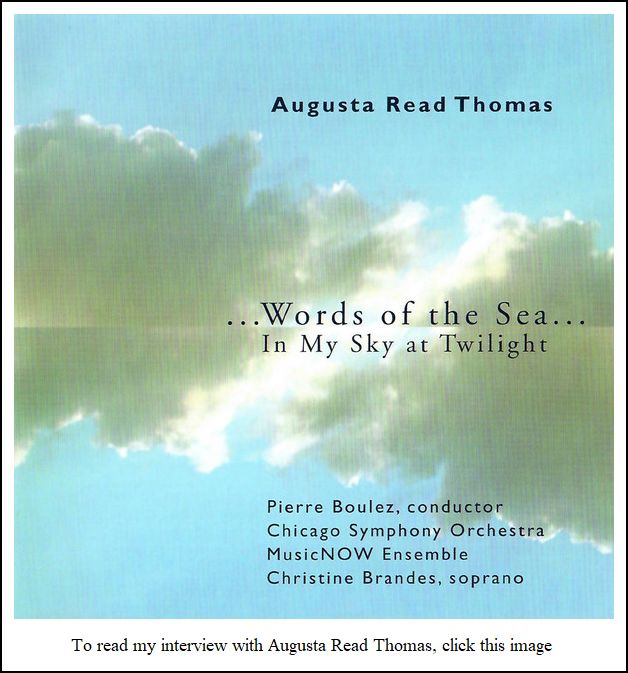 Bruce Duffie: Do you enjoy Baroque
music?
Bruce Duffie: Do you enjoy Baroque
music?|
Marie Fel was born at Bordeaux. She made her debut at the Paris Opera in 1733 and sang regularly at the Concert Spirituel. In a career that lasted 35 years, she sang in all the operas of Rameau along with Pierre Jélyotte, created roles in those of Mondonville, and participated in revivals of those of Lully and Campra. She retired from the stage in 1758, but continued to perform in concert until 1769. She died in Paris. She had a long-term relationship with the painter Quentin de La
Tour, who painted her portrait [shown at right]. "The greatest personalities
of her age sought her good graces and gave her lively proofs of their
affections," including men of letters such as the Baron von Grimm and
the Encyclopédiste Louis de Cahusac. The French actress and singer Sophie Arnould was one of her students. |
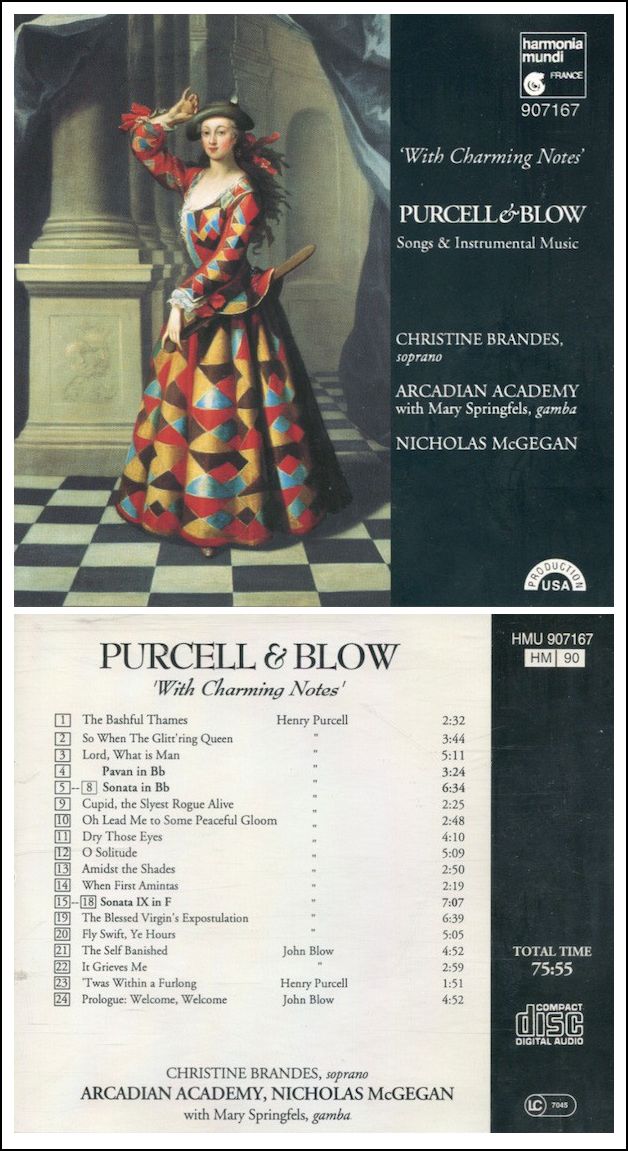
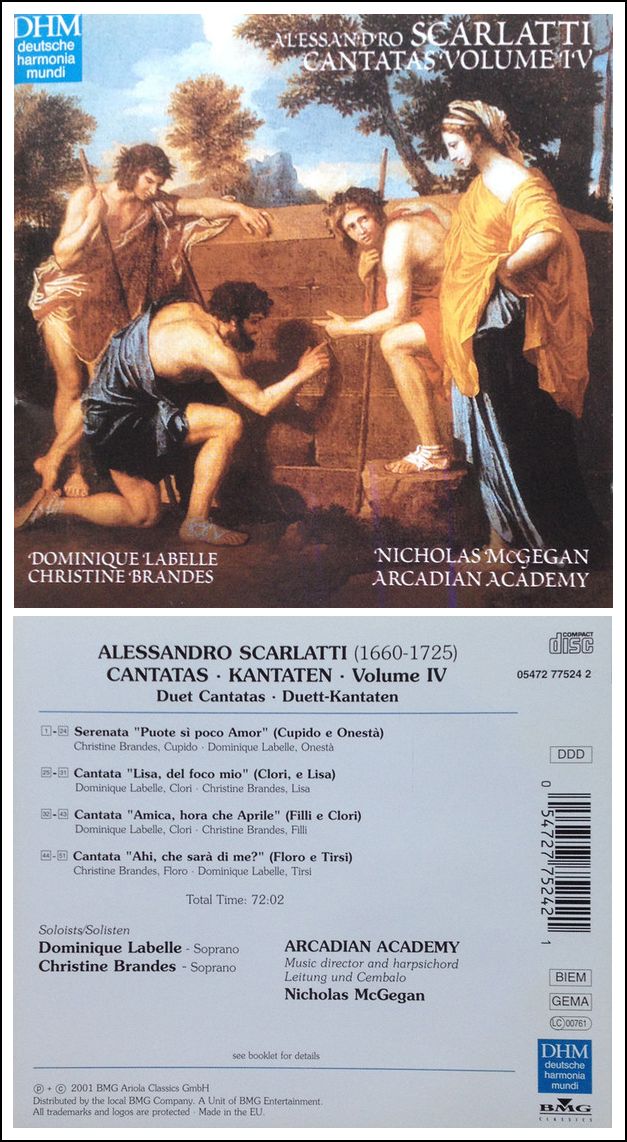 BD: It's all by feel?
BD: It's all by feel?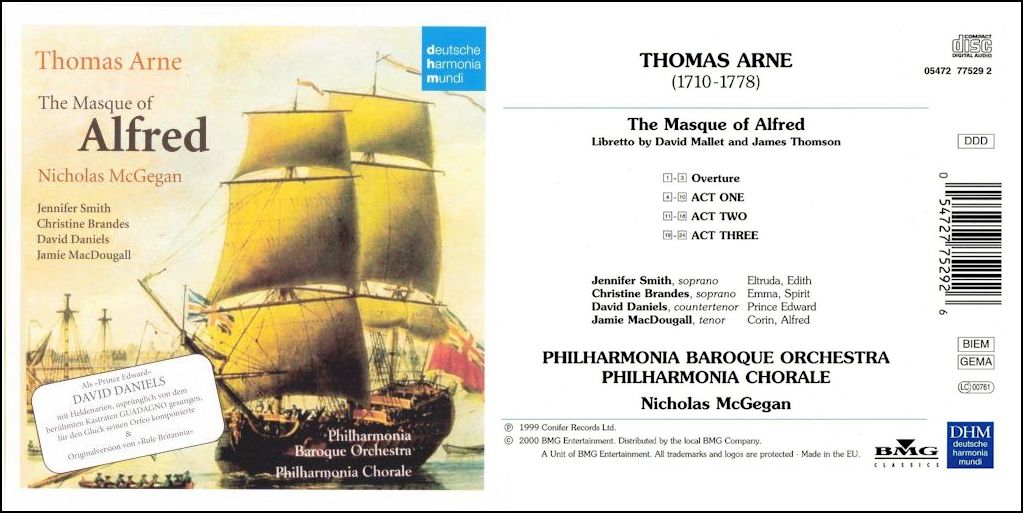
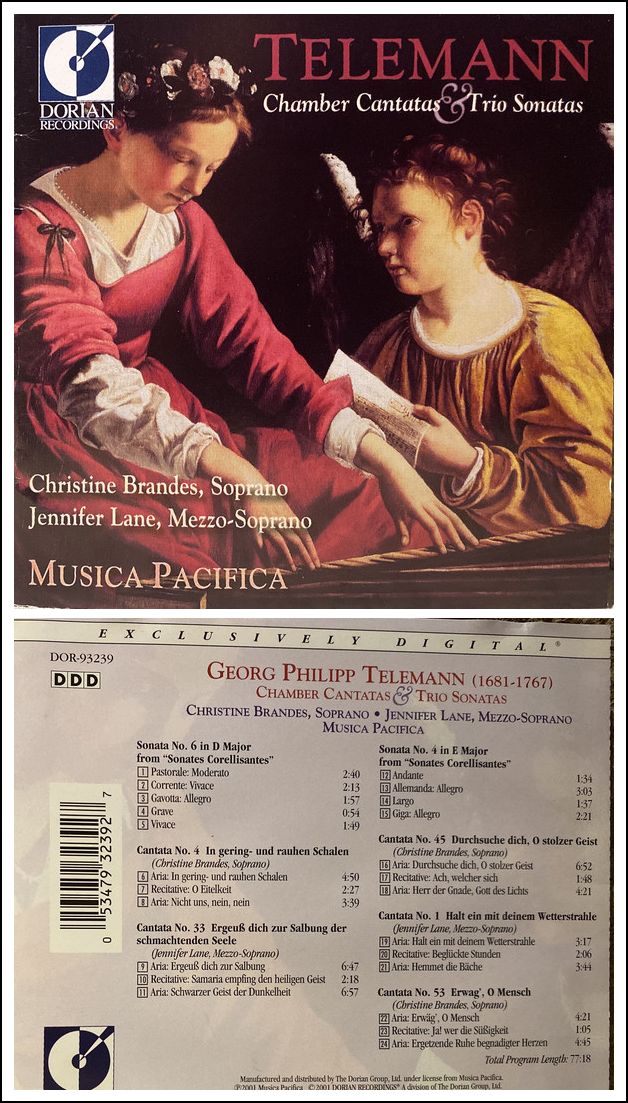
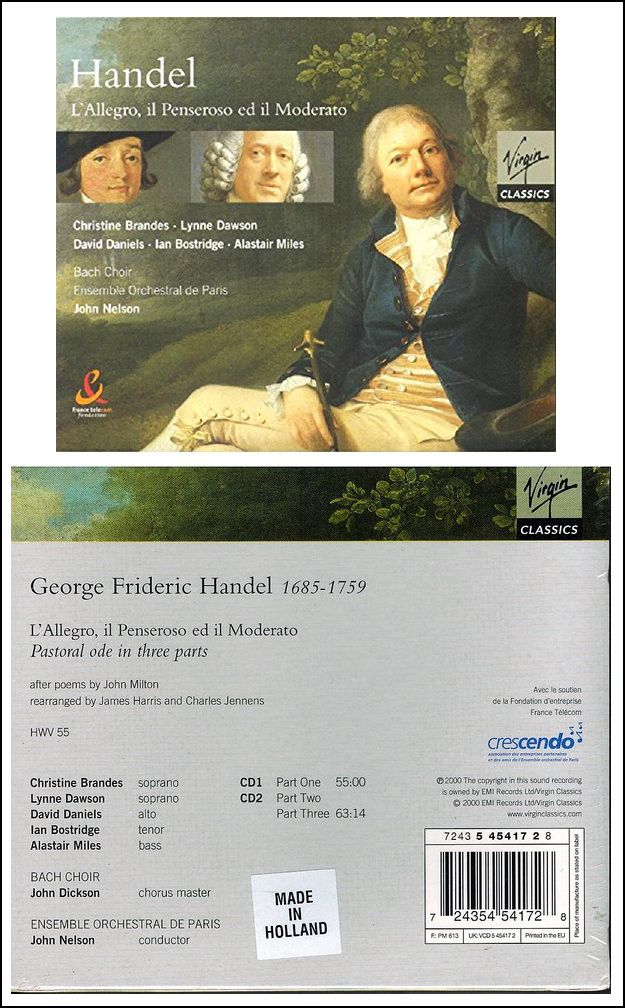
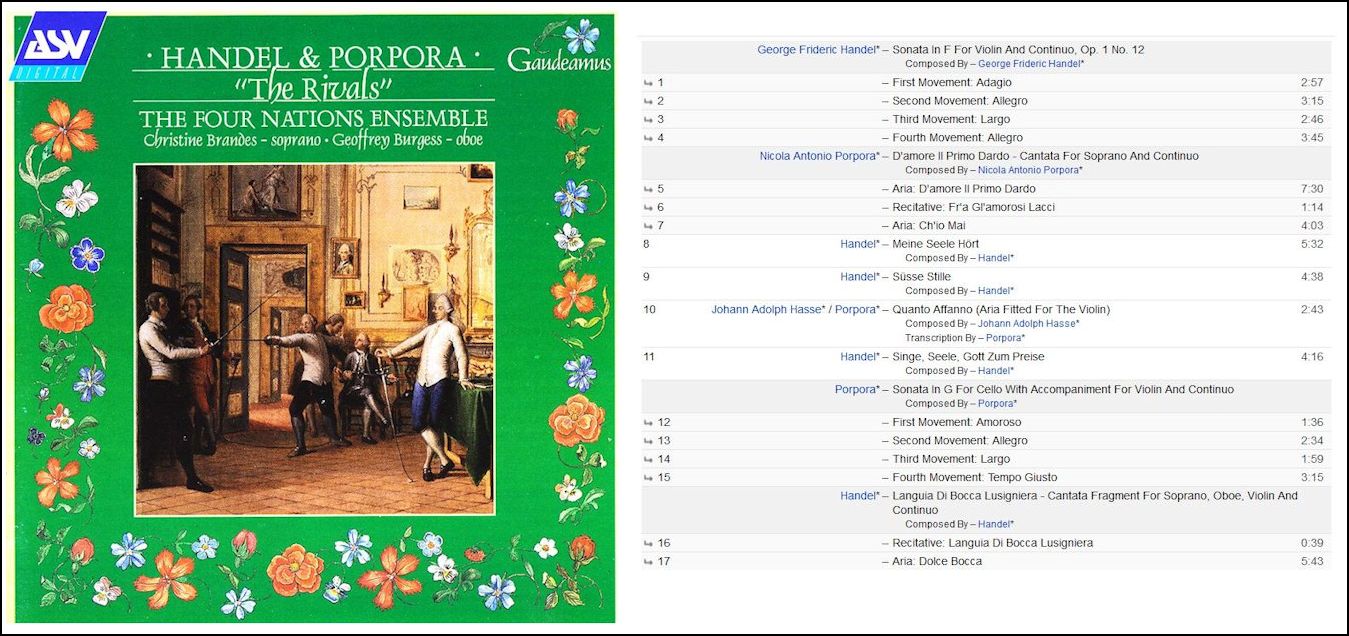
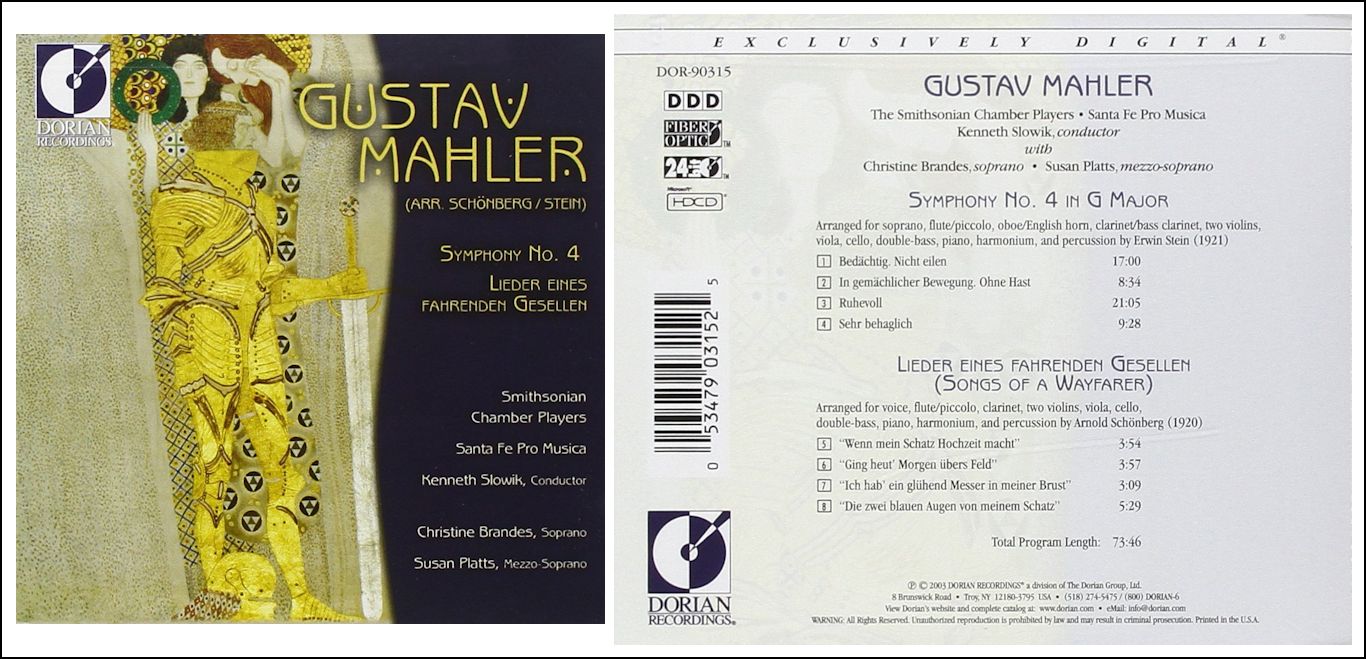
© 1998 Bruce Duffie
This conversation was recorded in Chicago on March 22, 1998. Portions were broadcast on WNIB later that year, and on WNUR in 2003 and 2014. This transcription was made in 2021, and posted on this website at that time. My thanks to British soprano Una Barry for her help in preparing this website presentation.
To see a full list (with links) of interviews which have been transcribed and posted on this website, click here.
Award - winning broadcaster Bruce Duffie was with WNIB, Classical 97 in Chicago from 1975 until its final moment as a classical station in February of 2001. His interviews have also appeared in various magazines and journals since 1980, and he now continues his broadcast series on WNUR-FM, as well as on Contemporary Classical Internet Radio.
You are invited to visit his website for more information about his work, including selected transcripts of other interviews, plus a full list of his guests. He would also like to call your attention to the photos and information about his grandfather, who was a pioneer in the automotive field more than a century ago. You may also send him E-Mail with comments, questions and suggestions.